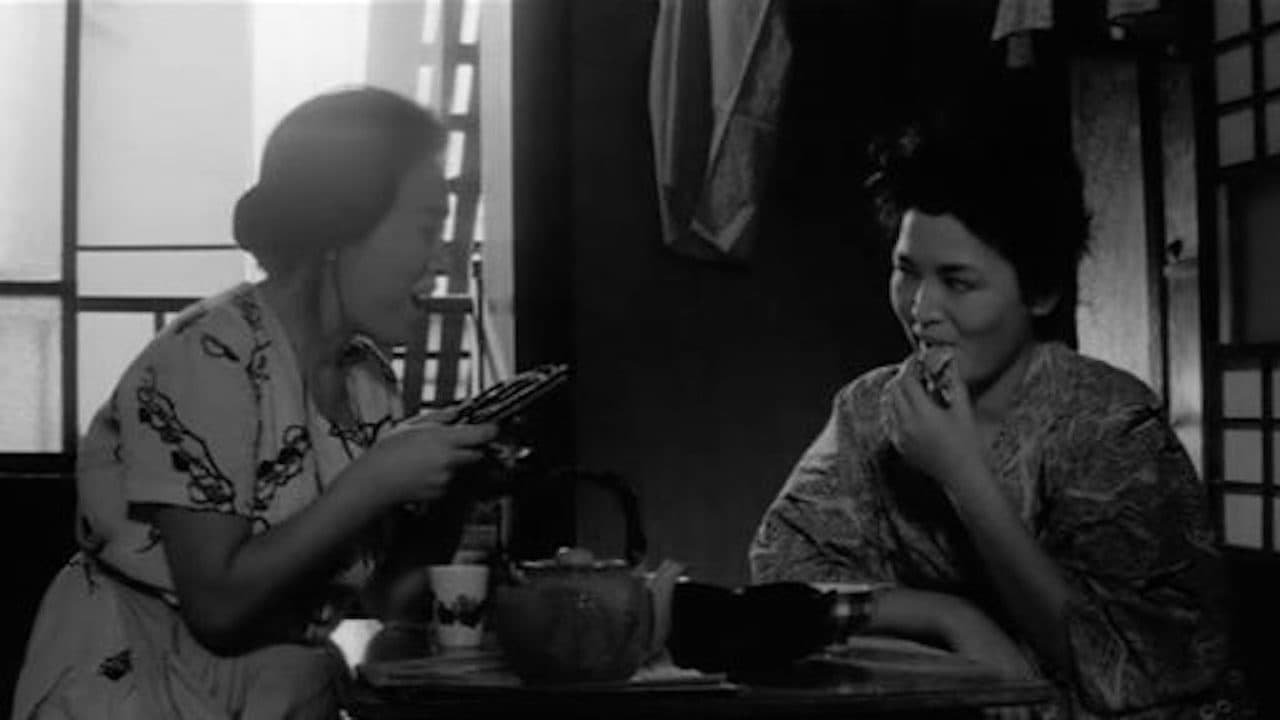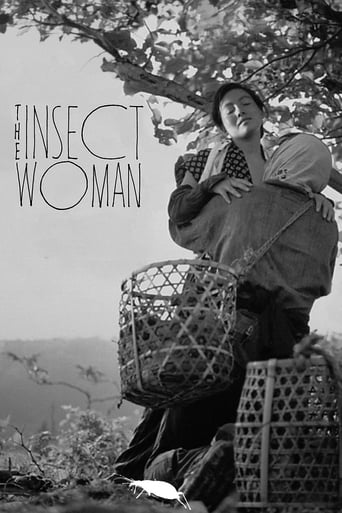

First seen around 50 years ago by the eccentric old Japanese gent sat next to me (who mysteriously managed to lose his cap inside his own bag at the end of the film), 'The Insect Woman', to give it its English title, charts the rise and demise of Tome from her birth to middle-age in post-war Japan. Born a bastard (or bitch, if she's a lady), she forms an unusual relationship with her father while growing up in a small village out in the sticks. When becoming a woman, she grows more rebellious, giving birth to her own bastard daughter and becoming further shunned by local gossip, and so moves to Tokyo to take her childish rebellion to the world of prostitution, whoring out anyone she meets.Made in 1963, director Imamura Shohei creates a quirky film full of subtle humour, with its tongue firmly in its cheek. With a controversial back catalogue behind him, this film is full of naughtiness and shows a modern woman not afraid to throw herself into anything in the hope that her daughter will not lead a similar life to hers.Taking on social taboos, the influence of this piece can be seen in the many later films tackling women fighting alone against society's pointing finger, and for that, the digital re-mastering is justified 49 years on. Full of humour and entertainment value, this is an important work in the career of an influential Japanese director whom passed away last year: a friend of my fellow eccentric old Japanese audience member.
... View MoreInsect Woman seems to be Imamura's Trojan horse in the world scene. Not the stunning debut of a young up and coming director that catches everyone unawares, Imamura had quite a few films under his belt by that point. Not even the film that cemented his reputation because if critical recognition and prestigious awards predate rather than follow public awareness then Imamura is only in the past 10 years beginning to earn his due.But with Insect Woman he emerged not only as a preeminent auteur and bright hope of what is known as the Nuberu Bagu movement, who would be twice decored with the coveted Palm D'Or in time, this perhaps a status that is often subliminally associated with notions of a haughty intelligenzia hermetically removed from the populus whose struggles and follies it purports to address, but also an artist equal parts humane and cynic who picks his characters from the lowest strata of society and examines their lower instincts with care and affection. Moral judgement is absent from the film. The life and misadventures of a poor farmer's illegitimate daughter who travels to Tokyo and becomes first a prostitute then the owner of a call-girl service is observed in a matter of fact way. He never allows the movie to careen in melodramatic shallows and moralistic histrionics. If Imamura has a case to make and premise to prove, it's of a political nature.Spanning almost half a century of Japanese history, the story of Insect Woman parallels the rise and fall of Japan in the years leading to and after WWII. The rise from humble beginnings to power and the subsequent fall with the bitter feeling of having been betrayed by everyone. Like other Imamura movies, Insect Woman can be tedious at parts, not because nothing happens. Superficially there is a succession of episodes. But really because little to nothing meaningful happens. Sprawling in nature and rarely stopping to examine motives and psychology, Insect Woman even at its most intimate moments places a certain distance between viewer and film and in doing so allows for an often comedic tinge to seep in. As such, it doesn't have some deep insight into human nature to depart but it's mostly pleasing to watch and Imamura's filmic language feels amazingly fresh and vibrant even to this day. The man was 20 years ahead of his time and his films have aged in all the right ways.
... View MoreTHE INSECT WOMAN is essentially a rags-to-riches-to-rags story told in fragmentary style against a backdrop of significant historical events of 20th Century Japan. The film's title (it also goes by the more clinical name of ENTOMOLOGICAL CHRONICLES OF JAPAN!) remains obscure, however, unless the director wants to assimilate Japanese women to hard-working (i.e. slave-like) insects. Indeed, leading lady Sachiko Hidari (an excellent, award-winning performance) slowly rises from the position of simple prostitute in an exclusive brothel to that of - the equivalent of a Queen Bee, one assumes - madam of said establishment (eventually being replaced by her own daughter!). There is also a subtle hint of incest here, with the woman's father showing an unhealthy interest in her growing up - an affection which is then transferred to the daughter, once she leaves the country for the big city! Another interesting, if entirely gratuitous, touch is the director's idiosyncratic (since it is heavily featured in all 3 of his early films I've watched) use of freeze-framing as a means of transition from one scene to the next.
... View More(Note, the following contains some mild spoilers)This is the story of a woman born into an impoverished rural family in the early 1900's, starting the day she is born and ending on the day she becomes a grandmother. The title refers to the way an insect's behavior is determined simply by the need for survival, acting by instinct alone and unaffected by concepts such as love or morality. In the same way, this woman goes through life rarely giving a thought to anything other than her own self interest. For example, she eventually drifts into prostitution and betrays her madam in order to take her place, only to be betrayed herself by a girl she mistreated.Yet we can't really blame her too much. People with the same lack of moral standards surrounded her childhood and her life was beset by tragedies and exploitation by others which seemed to conspire to make it impossible for her to escape the kind of life she led. At the end of the movie her grandchild is about to be born to the same circumstances as she was, thus the cycle perpetuates itself to another generation.Overall the movie is thought provoking and worthwhile. The sympathetic yet unflattering portrayal of the seamier side of Japanese society reminded me of Threepenny Opera. However, there seemed to be too much going on to fit into a small amount of time. This left a lot of gaps in the story, which made it a bit hard to follow, and left some important characters undefined since they appeared in only a few scenes.
... View More